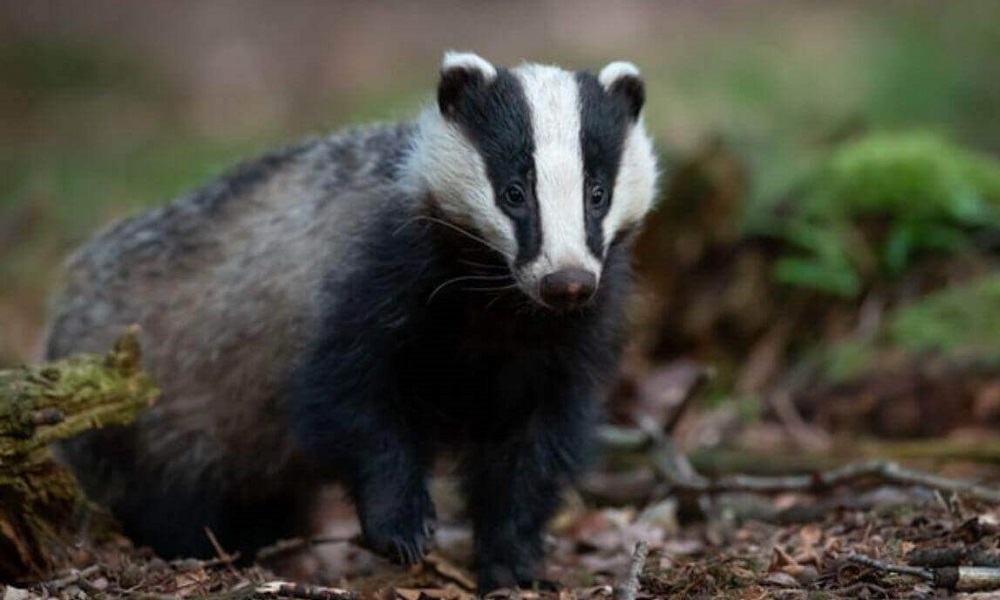Badgers are dangerous to dogs because they can transmit rabies and other diseases. They can also attack dogs if they feel threatened.
Badgers are generally not considered dangerous to dogs unless provoked or cornered. Badgers are solitary, nocturnal animals that typically avoid confrontation.
They can be quite territorial and may defend themselves if they feel threatened. Badgers are equipped with sharp claws and powerful jaws, so if a dog attempts to engage with a badger, it can result in injuries to both the dog and the badger.
To protect your dog and local wildlife, it’s essential to keep your dog on a leash in areas where badgers may be present and to avoid confrontations with these animals, as it’s best for the safety and well-being of both species.

Can Dogs Catch Disease from Badgers?
Yes, dogs can catch diseases from badgers. Several diseases can be transmitted from badgers to dogs, including rabies, bovine tuberculosis, and leptospirosis.
It is important to keep your dog away from badgers, as well as any other wild animals, to prevent them from contracting these or other diseases.
How Dangerous are Badgers
Badgers are generally not considered dangerous to humans, but they can be aggressive if they feel threatened or cornered. Here are some important points to consider regarding the potential dangers associated with badgers:
Aggression When Cornered
Badgers have strong jaws and sharp claws, and they may bite or scratch if they feel trapped or threatened. It’s essential to avoid approaching or cornering a badger, especially if it exhibits defensive behavior such as growling, hissing, or baring its teeth.
Rabies Risk
While rabies is relatively rare in badgers, as with any wild animal, there is a small risk of disease transmission. It’s advisable to avoid contact with any wild animal and to report any potentially rabid animals to local authorities.
Mostly Nocturnal
Badgers are nocturnal animals, which means they are most active at night. During the day, they usually stay in their burrows. If you encounter a badger during the day, it might be sick or injured, and it’s best to leave it alone or contact local wildlife authorities for assistance.
Rare Encounters
Badgers tend to avoid human interaction and are not commonly seen by people. If you do encounter one, it’s often because the badger is trying to cross a road or find food.
Protecting Pets and Livestock
Badgers are primarily carnivorous and may pose a threat to small pets or livestock, such as chickens. Proper fencing and other protective measures can help deter badgers from entering your property.
Conservation Status
Badgers are protected species in many countries due to their declining populations. It is illegal to harm or kill them in areas where they are protected.
What to Do If You Encounter a Badger?
Badgers are one of the UK’s most popular animals, but they can be aggressive and dangerous if they feel threatened. If you encounter a badger, it is important to stay calm and avoid making any sudden movements.
If the badger does become aggressive, try to scare it off by making loud noises or throwing objects in its direction. If all else fails, call for help from a professional who can safely remove the animal.
Are Badgers Naturally Aggressive?
Badgers are not naturally aggressive animals, but they are known to be territorial and may become aggressive when they feel threatened or cornered.
Badgers are solitary, nocturnal creatures that prefer to avoid interactions with other animals, including humans and dogs. They are more inclined to flee or hide from potential threats than to engage in aggressive behavior.
Is Badger Poo Dangerous to Dogs?
Badger feces, like the feces of many wild animals, can potentially carry diseases and parasites that may be harmful to dogs and other animals.
The specific health risks associated with badger feces can vary depending on various factors, including the health of the badger and the environment in which it lives.
One potential concern is the transmission of parasites such as roundworms or tapeworms, which can be found in the feces of some wild animals, including badgers. If a dog comes into contact with contaminated feces or consumes it, there is a risk of parasitic infection.
Some diseases could potentially be transmitted through contact with badger feces, though such transmission is relatively rare.
What Do Badgers Eat?
Badgers are omnivores, which means they eat both plants and animals. Their diet consists of small mammals, such as rabbits and ground squirrels, as well as insects, reptiles, amphibians, birds, and carrion.
Badgers may also eat fruits and vegetables. Badgers have long claws on their front feet that they use for digging.
They typically dig around the roots of trees or shrubs to find food. Sometimes badgers will dig burrows in the ground to store food or create a place to live.
Are Badgers Blind?
Badgers are not blind. They have excellent eyesight and can even see in the dark! However, they do have very poor depth perception.
This means that they can’t judge how far away something is very well. As a result, badgers often stumble and bump into things.
Conclusion
Badgers can be dangerous to dogs if they feel threatened. If a badger is cornered by a dog, it may attack the dog in order to defend itself. Badgers have sharp claws and teeth that can cause serious injuries to dogs. In some cases, dogs have even been killed by badgers.